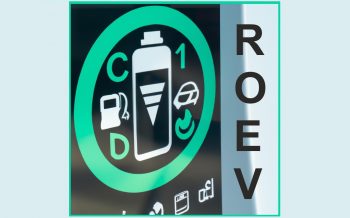
Implementation period: 2021-12-01 - 2023-07-31
Type: National
Division: The Division of Energy Economics
PROJECT NR: POIR.01.01.01-00-0855/21
PROJECT DESCRIPTION: An analysis of the development of the electromobility market in Poland shows that despite the increase in the number of electric vehicles and charging stations, the market is still in the early stage of development. However, an increasing number of electric vehicles can be observed on the streets of Polish cities. According to the reports of the Polish Alternative Fuels Association (PSPA), “REPORT. Barometer of New Mobility 2020/21”, in addition to the main barrier, which is the high price of electric vehicles, Poles face uncertainties that are associated with traveling using an electric vehicle from point A to point B. The barrier is the lack of guarantee of the availability of charging stations (due to, e.g., the unavailability of the charging station or the lack of a smart booking system) on the route and the possibility of using them. Another significant obstacle in purchasing an electric vehicle is the discomfort associated with long charging times (depending on the charging station). This project aims to address the identified concerns and propose a specific solution.
Consequently, the goal of the project is to develop an automated tool to support the decision-making process of drivers in the selection of stations and charging parameters for an electric car on a journey. The tool will be based on the integration of two research methods: mathematical programming (optimization) and machine learning (forecasting). The implementation of the product will be a response to the growing market demand for services necessary for the effective use of electric vehicles.
Machine learning methods will be used to predict the reliable range of an electric vehicle under variable conditions, taking into account factors such as ambient temperature, driving style, route profile, information about the systems activated in the vehicle, and the state of charge of the battery. The results of the machine learning model will be used as input parameters for the optimization model based on mathematical programming. The task of this model will be to select charging stations and schedule charging for a specified multi-stage vehicle travel route. The optimal solution will consider multiple criteria (multi-objective optimization), primarily related to charging costs and time. As part of the project, an integrated tool will be built, which will be verified and tested in the course of the R&D works. Pre-implementation works are also foreseen within the project.
The target group of the project product will be individual users (drivers) of electric vehicles. It should be noted that the proposed solution will be attractive both to users planning a trip and looking for optimal charging points, as well as to other EV users who mainly use their own charging sources.
The project is implemented by a consortium of two entities: TwinIO Energy Sp. z o. o. and IGSMIE PAN.
PROJECT BUDGET: 5 987 303,97 PLN
FUNDING: 4 863 651,32 PLN
PROJECT R&D MANAGER: prof. dr hab. inż. Jacek Kamiński, kontakt: kaminski@min-pan.krakow.pl
The project is funded by the National Centre for Research and Development under the Operational Programme Smart Growth 2014–2020, PRIORITY AXIS: “Support for R&D activities carried out by enterprises”, ACTIVITY: “R&D projects of enterprises”, SUB-ACTIVITY: “Industrial research and development work carried out by enterprises”, COMPETITION: 1/1.1.1/2021 – Fast track.










